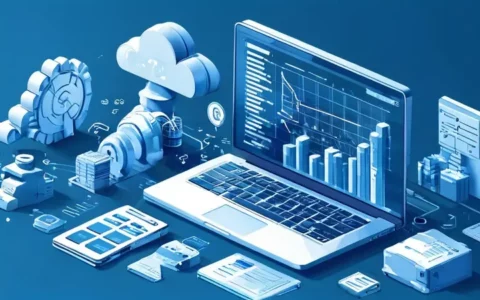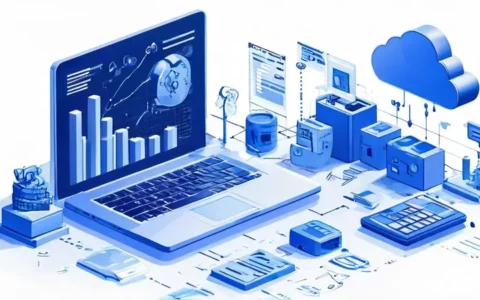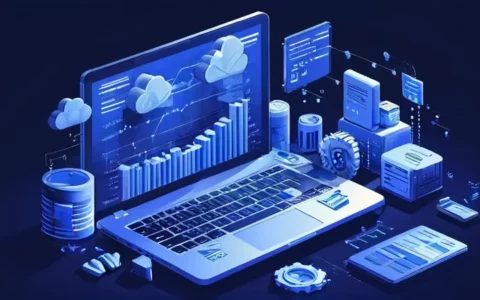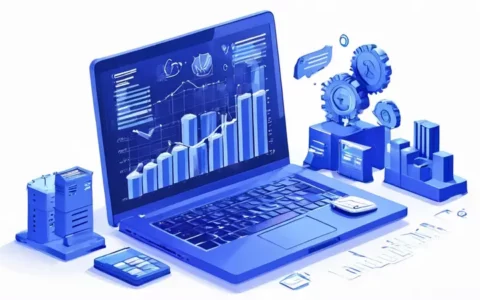
工业编程领域的英文缩写主要有两个:1、PLC(Programmable Logic Controller),2、SCADA(Supervisory Control and Data Acquisition)。在这两者之中,PLC尤其值得关注。PLC,或可编程逻辑控制器,是工业自动化的心脏。这是一种特殊类型的计算机,主要设计用于在工业环境中控制机器和过程。它能够通过可编程的内存来存储执行操作的指令,如逻辑运算、顺序控制、计时、计数和数据处理。PLC的设计允许它可以承受严酷的工业环境,比如温度变化、湿度、尘埃和震动,这使得它在自动化制造领域至关重要。
一、PLC的重要性
PLC在现代工业自动化系统中的作用无法高估。它们提供了一种高效、稳定且成本效益高的解决方案,用于控制和监测制造过程。PLCs的可编程性意味着它们可以针对不同的应用进行重新配置,这为快速改变生产线上的操作提供了便利。因此,PLC系统在提高生产效率、降低运维成本以及增强产品质量方面扮演着关键角色。
二、SCADA系统简介
SCADA系统则提供了一个更高层次的监控和控制。这类系统能够实时收集来自PLC及其他控制设备的数据,通过图形用户界面展示这些信息,使得运营人员能够监视整个生产过程并进行实时调整。SCADA的弹性和可扩展性使其成为管理复杂工业操作的理想选择,尤其是当需要从远程位置集中监控多个过程时。
三、PLC和SCADA的结合
将PLC与SCADA系统结合使用能够提供一个全面的自动化解决方案,优化生产流程,提升运营效率。PLC负责执行实地的数据收集和控制任务,而SCADA系统则负责数据的聚合、处理和呈现。这种组合不仅提高了操作的灵活性,还加强了数据分析能力,从而帮助企业在竞争激烈的市场中保持领先地位。
四、工业编程对未来制造业的影响
未来工业编程技术的进步,尤其是在PLC和SCADA方面,有望进一步提高自动化的水平和智能制造的能力。随着物联网(IoT)技术的融合、大数据分析和人工智能的应用,工业编程将成为推动工业4.0革命的核心力量。这种技术革新不仅能够提升生产效率和灵活性,还将使制造过程更加环保、节能和可持续。
在未来,随着技术的不断进步,PLC和SCADA系统将更加智能化,能够进行自我学习和自我优化。这将极大地改变传统的制造业模式,为企业带来前所未有的运营效率和生产力。因此,工业编程不仅是当前制造业的基石,也是未来产业革命的关键驱动力。
相关问答FAQs:
Q: What is the abbreviation for Industrial Programming in English?
A: The abbreviation for Industrial Programming in English is usually referred to as IEP. However, it is important to note that abbreviations can vary depending on the specific context and industry. In the field of industrial automation and control systems, you may also come across the abbreviation IEC, which stands for International Electrotechnical Commission. This organization develops and publishes international standards related to industrial automation and programming languages.
Q: Are there any other commonly used abbreviations related to Industrial Programming in English?
A: Yes, there are several other commonly used abbreviations in the field of Industrial Programming. Some of these include:
- PLC: Programmable Logic Controller – PLCs are widely used in industrial automation systems to control and monitor various processes.
- SCADA: Supervisory Control and Data Acquisition – SCADA systems are used to monitor and control large-scale industrial processes.
- HMI: Human-Machine Interface – HMIs are graphical interfaces that allow operators to interact with industrial control systems.
- CAD: Computer-Aided Design – CAD software is used in industrial programming for designing and modeling components and systems.
- CNC: Computer Numerical Control – CNC machines are used in industries such as manufacturing and machining, where precise control of tools and equipment is required.
Q: Can you explain further about Industrial Programming and its applications?
A: Industrial Programming involves the development and implementation of software programs used in various industrial processes. These programs are designed to control, automate, and optimize the operation of machinery, equipment, and systems involved in manufacturing, production, and other industrial activities.
The applications of Industrial Programming are wide-ranging and include:
-
Manufacturing Automation: Industrial Programming is extensively used in manufacturing industries to automate production lines, control robotic systems, and optimize manufacturing processes. By using programming languages like ladder logic or structured text, industrial programmers can develop software that ensures efficient and reliable operations.
-
Process Control: Industrial Programming plays a crucial role in industries such as oil and gas, chemical, and pharmaceuticals, where precise control of processes is critical. Through the use of programming techniques like PID (Proportional-Integral-Derivative) control, industrial programmers can develop software that regulates variables such as temperature, pressure, flow rate, and level in industrial processes.
-
Data Acquisition and Analysis: Industrial programming is essential for data acquisition and analysis in industrial settings. By developing software that integrates with sensors, actuators, and data systems, industrial programmers can collect, analyze, and visualize data to make informed decisions, optimize performance, and implement predictive maintenance strategies.
-
Robotics and Automation: With the advancement of robotics, Industrial Programming is at the forefront of developing software for robotic systems. Industrial programmers work on programming languages such as Robot Operating System (ROS) to control the movements, tasks, and interactions of robots in various industrial applications, including assembly lines, logistics, and material handling.
In summary, Industrial Programming plays a vital role in the automation, control, and optimization of industrial processes. It is a field that continues to grow as industries embrace technological advancements to enhance efficiency, productivity, and safety.
文章标题:工业编程英文缩写是什么,发布者:不及物动词,转载请注明出处:https://worktile.com/kb/p/1967823

 微信扫一扫
微信扫一扫  支付宝扫一扫
支付宝扫一扫 




